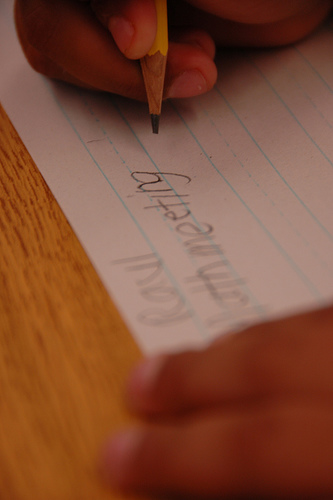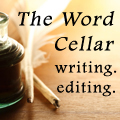Can Writing Be Taught? (In The Word Cellar)
 Wednesday, February 24, 2010 at 3:12PM
Wednesday, February 24, 2010 at 3:12PM This week we kick off the first In The Word Cellar feature with a basic -- and often touchy -- question: Can creative writing be taught?
 Here's my short answer: Yes.
Here's my short answer: Yes.
Of course, there's also a longer answer.
I'm drawn to kitchen analogies lately, so for a minute, let's think of writing as cooking. Can cooking be taught? Of course it can. In order to cook, we need to learn about different kinds of ingredients, how they react to various cooking methods, and how their flavors interact with each other. We need to know about utensils, how to tell when produce is ripe, the best way to chop an onion. To cook, we learn how to measure things, how to read a recipe, and eventually how to improvise without one. In order to create a tasty dish, we need to understand the ingredients, the method, and the art of seasoning something just so. Yes, cooking can be taught. This isn't to say that everyone will have the same cooking style, will excel at preparing the same dishes, or will become master chefs. After all, I did say the art of seasoning. But the building blocks of cooking can be taught.
I feel the same way about writing. Yes, there is a difference between natural talent and learned skill. And yes, I believe that both exist and will impact the way we write. But we won't get very far on the page if we focus too much on innate ability and neglect the learned skills part of the picture.
What is the basis of writing? Language. That's simple, but it gets tricky. Because we use language everyday, it's easy to believe that we can automatically master the art of writing. But being an excellent writer is much more than knowing how to use words to communicate. We need to know how words interact with each other; how to structure a sentence, paragraph, and passage to create the best effect; how to use various writing techniques to create a powerful and beautiful story. Things like grammar and verb tenses matter. They matter because they help us to understand the building blocks of our craft.
Now, if all of this sounds cold and clinical to you, don't worry. I also believe that writing is an art, full of mystery, magic, and serendipity. I'm not an either-or kind of girl. I believe in both-and. Writing is both a science and an art. An excellent piece of writing is the product of learned skills and natural talent. The process of writing is something to be examined and enjoyed.
As we explore the nature of writing here In The Word Cellar, I hope you'll remember this: You can learn to be a better writer. I can't do anything about your natural level of talent, and frankly, neither can you. So why worry about it now? Besides, we're terrible judges of our own abilities. Let's focus on the parts we can control. Let's learn the techniques of good writing, and let's give ourselves over to the joy of creation. By learning about the ingredients, method, and art of writing, each of us can create something lovely.
What do you think? Do you believe creative writing can be taught? Are you ready to learn? Let us know in the comments.
**I'll be answering community questions in the coming weeks. Send your writing questions to jennifer{at}thewordcellar{dot}com with "In The Word Cellar" as the subject line.**
In The Word Cellar runs on the second and fourth Wednesday of the month. Check out other articles in the series here.
 in the word cellar,
in the word cellar,  writing,
writing,  writing life,
writing life,  writing tips
writing tips 




